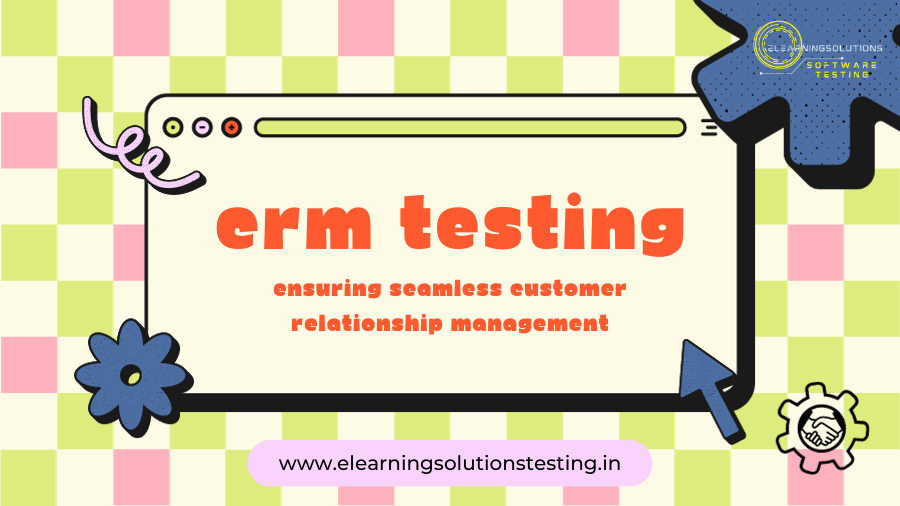Introduction to CRM Testing
In the realm of customer relationship management (CRM), the significance of CRM testing cannot be overstated. This article delves into the intricacies of CRM testing, exploring its definition and its pivotal role in ensuring the seamless functionality of CRM systems.
Key Components of CRM Testing
To comprehensively understand CRM testing, it’s essential to dissect its key components. From user interface testing to data integrity checks, each component plays a vital role in guaranteeing the effectiveness of CRM systems.
Challenges in CRM Testing
Testing CRM systems comes with its set of challenges. Navigating the complexity of CRM systems, handling customizations, and ensuring cross-browser compatibility are critical aspects that demand careful consideration during the testing phase.
The Role of Automated Testing in CRM Testing
Automated testing has emerged as a game-changer in Customer relationship management testing. This section explores the advantages of automated testing and provides insights into selecting the right automation tools for Customer relationship management testing endeavors.
Best Practices for Effective Customer relationship management Testing
Effective Customer relationship management testing is more than just running a set of tests. It involves comprehensive test planning, meticulous test case design and execution, and a commitment to continuous testing, especially in agile development environments.
Real-world Examples of Customer relationship management Testing Success
Success stories from companies that have achieved seamless CRM implementations offer valuable insights. By examining these examples, businesses can draw lessons from successful Customer relationship management testing strategies.
The Future of Customer relationship management Testing
As technology evolves, so does the landscape of CRM testing. This section explores the integration of artificial intelligence and machine learning into Customer relationship management testing and the evolving strategies that will shape the future of Customer relationship management testing.
Choosing the Right Customer relationship management Testing Approach
Not all CRM systems are created equal. This section provides guidance on tailoring testing strategies to accommodate CRM customizations and considering industry-specific requirements for effective testing.
Benefits of Rigorous Customer relationship management Testing
Rigorous Customer relationship management testing goes beyond ensuring software functionality. It is a crucial element in safeguarding customer data security and improving the overall reliability of CRM systems.
Measuring Success in Customer relationship management Testing
Key performance indicators (KPIs) and evaluating the return on investment (ROI) in Customer relationship management testing efforts are essential metrics. This section guides businesses on how to effectively measure the success of their Customer relationship management testing initiatives.
Common Myths About Customer relationship management Testing
Dispelling common misconceptions is vital for adopting robust Customer relationship management testing practices. This section addresses prevalent myths, providing clarifications and addressing concerns related to Customer relationship management testing.
Conclusion
In conclusion, Customer relationship management testing is not merely a checkbox in the CRM implementation process; it is the backbone that ensures the effectiveness and reliability of customer relationship management systems. Emphasizing the critical role of Customer relationship management testing and adopting robust testing practices is crucial for businesses aiming to provide a seamless customer experience.
FAQs
- Is CRM testing only necessary for large enterprises?
- No, Ig is essential for businesses of all sizes as it ensures the functionality and reliability of customer relationship management systems.
- What are the key considerations for selecting automated testing tools for Customer relationship management testing?
- Considerations include ease of integration with CRM systems, script scalability, and the ability to handle CRM customizations.
- How can businesses ensure cross-browser compatibility in testing?
- Testing across various browsers and versions is crucial. Utilizing cross-browser testing tools and frameworks can help ensure compatibility.
- Is it a one-time process, or is it continuous?
- It should be a continuous process, especially in agile development environments, to adapt to evolving requirements and maintain system reliability.
- What impact does it have on customer data security?
- Rigorous Customer relationship management testing ensures the security of customer data by identifying and addressing vulnerabilities, minimizing the risk of data breaches.
You may be interested in:
Consequences of bugs in software testing

